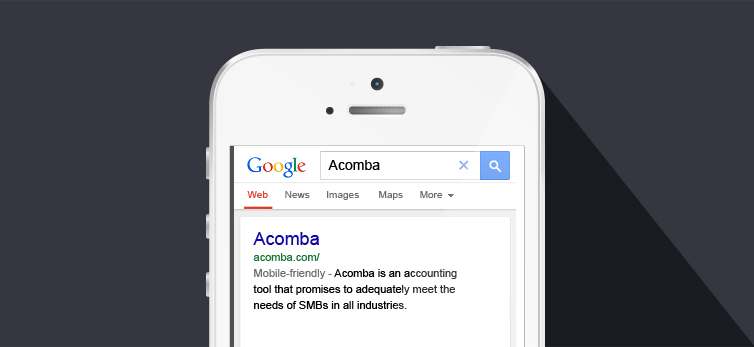Did your
website
survive
“Mobile
geddon”?
“Mobilegeddon” took place on April 21, 2015. Mobilegeddon is a new word coined from the word “Armageddon” to describe the moment when Google began to penalize the mobile search engine optimization of sites that are not mobile-friendly. If you haven’t acted, it’s not too late. However, we strongly recommend that you read the information and solutions outlined in this article.
In 2014, Google launched the Mobile-friendly label so that users of its search engine could quickly identify websites that respond to their mobile devices.

On February 26, 2015, Google decided to go further by releasing a publication in which it announced that starting April 21, 2015, the mobile friendliness of websites was going to play a major role in Google’s search engine optimization algorithm.
Concretely, what does “Mobilegeddon” mean for my company?
If your competitor’s website is mobile-friendly and yours isn’t, web users who perform a search on Google using their smart phone or tablet now have a much greater chance of finding your competitor before they find you.
Is the fact that my website is not mobile-friendly a major problem?
The great majority of consumers who are looking for a product, service or business type the name on Google first. You already know that: you are one of those consumers. However, as we detailed in our article How is the growing popularity of mobile devices affecting e-commerce? , today, most Internet connections are made from mobile devices. Therefore, yes, if your website is not mobile-friendly, it could result in a major visibility problem for you.
Keep in mind that Google does not make its decisions lightly. If the world’s number 1 search engine encourages you to modify your website, it’s ultimately to improve web user experience. Web surfers often have little time when they connect to the Internet using their mobile devices. That is likely the reason why they leave a website that is not responsive much faster than a responsive site. In other words, Google encourages you to modify your site for your benefit!
How do I know if I have a mobile-friendly website?
Fortunately, Google has the habit of doing things right. It provides you with a free analysis tool to test the mobile compatibility of your website. In a few seconds, not only does the tool let you know if your website is mobile-friendly, but it also tells you which elements you must change to enhance its mobile search engine optimization. Google suggests that you continue with the PageSpeed Insights tool, which provides specifics on your website’s problems.

Use your telephone to consult this blog
or the Acomba website
you will see what the work
of a professional team looks like!
How do I make my site mobile-friendly?
The Acomba team offers a turnkey responsive website creation service. It would be wrong not to mention it!
The reason is that everything depends on your web host. For example, if you use WordPress, you can refer to the most popular mobile themes. You can also use various plug-ins . Lastly, if you are comfortable with web programming, you can follow the advice given by the PageSpeed Insights tool. However, if you are a beginner, you risk causing yourself a few headaches.
I don’t know anything about programming and I want a mobile-friendly website for my business. Any suggestions?
The Acomba team offers a turnkey responsive website creation service. It would be wrong not to mention it!
My Web Storefront: Between a free system and a web agency
My Web Storefront is not a free system like WordPress, nor is it a website creation agency whose prices are often exorbitant. My Web Storefront is somewhere between the two. The advantage of My Web Storefront lies in the fact that you don’t have to take care of anything. You can modify your website’s image and content on your own, but if you want to make major changes, you just have to ask a team of programmers who take care of it for you: it’s included.
If your business already employs web programmers, this service may not be meant for you. However, this is a practical option if your business does not have a programming team and still wants to have a quality presence on the mobile web.
In the end, it all depends on your needs!

The Acomba blog is brimming with articles on business, IT and business management.
Subscribe so you don’t miss a thing!

I am already subscribed